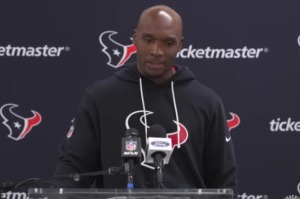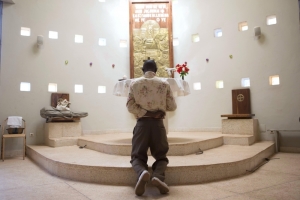Survey: Most U.S. Jews Don't Support Hagee
A majority of American Jews say Jewish groups should not partner with vocal Texas megachurch pastor John Hagee or other Christian Zionists that support Israel based on end-times beliefs, a new survey revealed.
More than three-quarters (78 percent) of the 800 American Jews questioned in a new J Street survey do not support Jewish groups working with Christian organizations that believe Jews must control the Holy Land before Jesus can return.
J Street is a non-profit, pro-Israel organization that promotes a diplomatic resolution to the Middle East conflict.
In particular, critics complain about Hagee's controversial views on the Holocaust – that it was God's way to force Jews to settle in Israel – and his fierce opposition to the Mideast peace proposal that calls for Israel to cede land to form a Palestinian state.
"The survey results are very eye opening. When presented with both sides of the debate over U.S policy in the Middle East, American Jews strongly favor the United States using its leverage to help resolve the Arab-Israeli conflict," said Jim Gerstein, who conducted the survey, in a statement.
The survey was released ahead of Hagee's annual Christians United for Israel summit in Washington, D.C., this week, July 21-24. The summit is the nation's largest Christian Zionist conference and is scheduled to feature speeches by Sen. Joseph Lieberman (I-Conn.), who is an orthodox Jew, and Brad Gordon of the American Israel Public Affairs Committee.
J Street executive director Jeremy Ben-Ami says he hopes the poll will send a message to Lieberman and other Jewish organizations on how American Jews really feel about U.S. policies towards Israel and the Middle East.
"America's political leaders need to look beyond the loudest voices from the community to the opinions actually held by the broad majority of American Jews," Ben-Ami said.
"This is a strong message to the leadership of the American Jewish community that the members of the American Jewish community are not marching in lockstep behind them as they lead us off this cliff," Ben-Ami said, according to Religion News Service. "The alliance that they have struck with [Hagee] over the past few years is one we would like to see brought to an end."
The survey found that 75 percent of respondents view a two-state solution (Israel and Palestinian state) as necessary for Israeli security.
In addition to Jews voicing differences with Hagee, dozens of prominent evangelicals last summer also did likewise and supported a two-state solution. The evangelical leaders wrote a letter to President Bush emphasizing their support of a two-state solution in order to combat the "serious misconception" that all American evangelicals are against the creation of a new Palestinian state.
"Nothing could be further from the truth," they stated in the letter. "We, who sign this letter, represent large numbers of evangelicals throughout the U.S. who support justice for both Israelis and Palestinians."
Hagee had responded to the evangelical letter by saying, "The Palestinian people have never owned the land of Israel, never exited as an autonomous society," he said. "There is no Palestinian language. There is no Palestinian currency. And to say that Palestinians have a right to that land historically is an historical fraud."
Signers of the letter included Richard Mouw, president of Fuller Theological Seminary; David Neff, editor of Christianity Today; Richard Stearns, president of World Vision; and Joel Hunter, senior pastor of Northland Church in Longwood, Fla., and member of the executive committee of the National Association of Evangelicals.
There are an estimated 20 to 40 million Christian Zionists in the United States.



























